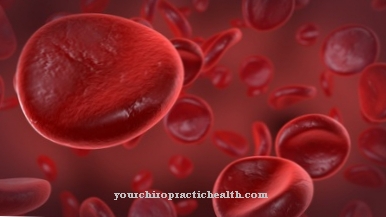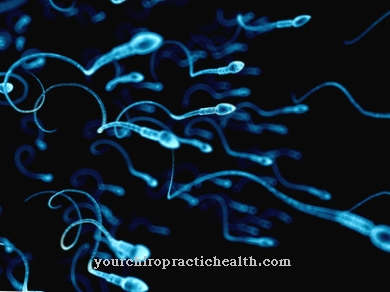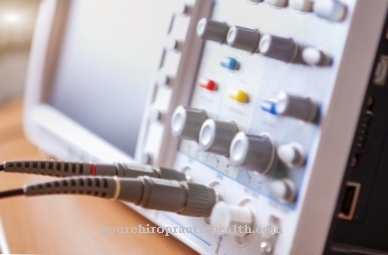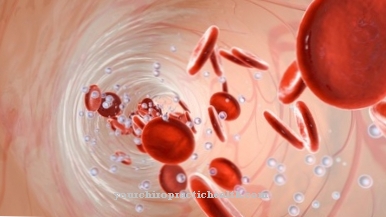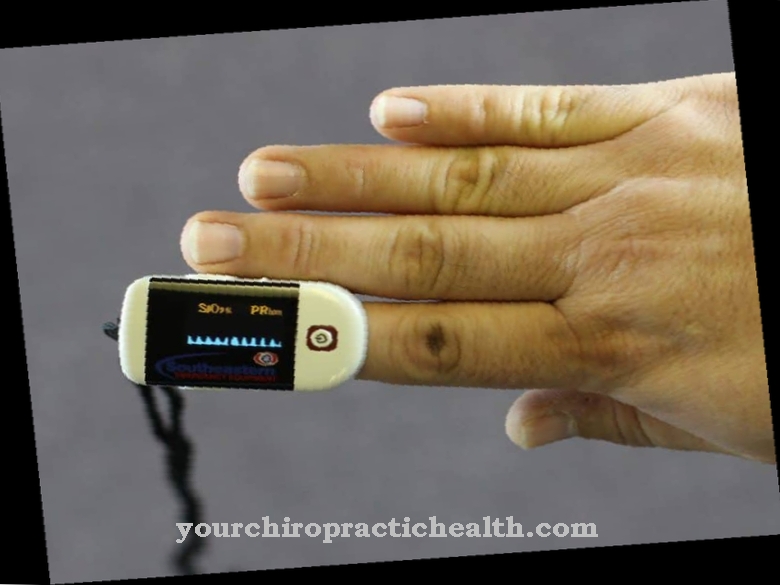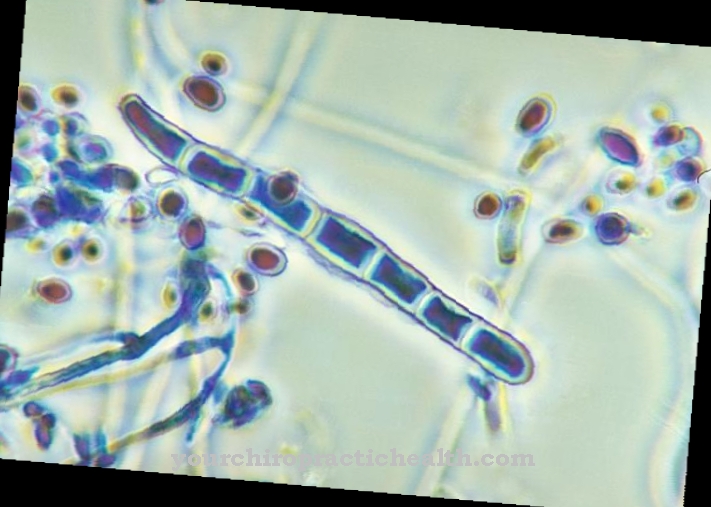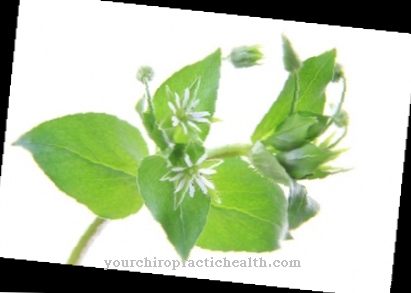The Jarisch-Herxheimer reaction is a natural reaction of the body. The body's reaction occurs when antibiotics are administered to combat bacterial infections and is caused by endotoxins caused by bacterial decay. Glucocorticoids are usually used for treatment.
What is a Jarisch-Herxheimer reaction?

© inesbazdar - stock.adobe.com
When bacteria break down, they release chemical compounds, also known as endotoxins. These decomposition products of bacteria cause physiological reactions in a person. One of them is the Jarisch-Herxheimer reaction, also known as Herx.
The name comes from the dermatologists Jarisch senior and Herxheimer, who observed the first symptoms of the reaction when treating syphilis. Bacteria are usually caused to decay with antibiotics. The endotoxins released in the process stimulate the release of inflammatory messenger substances, as characterized by the Jarisch-Herxheimer reaction.
The symptoms of the reaction include fever and headache. The symptoms can last from hours to several days. Ultimately, the symptoms are an indication of the successful fight against infectious diseases. The reaction does not appear to occur in the context of every infectious disease, but seems to be limited to certain bacteria.
causes
The cause of the Jarisch-Herxheimer reaction is the release of inflammatory mediators due to the endotoxin and thus bacterial decay. Inflammatory messengers are biochemical substances that initiate inflammatory reactions in tissues and keep them going. In addition to histamine and bradykinin, inflammation mediators are, for example, prostaglandins, leukotrienes and ECF.
These mediators have different effects on the body and its natural processes. If a certain blood level is exceeded, the substances can cause reactions such as fever and nausea or change the blood flow. The majority of all symptoms are attributed to the reaction to tumor necrosis factor and interleukin-1 from stimulated macrophages.
The Jarisch-Herxheimer reaction takes place mainly due to endotoxins of the spirochetes. These endotoxins are released, for example, during the antibiotic therapy of syphilis, borreliosis and typhoid fever. In Lyme disease, the reaction occurs in up to 60 percent of all patients. In neurosyphilis, on the other hand, it affects only a tiny percentage of all patients.
Symptoms, ailments & signs
As part of the Jarisch-Herxheimer reaction, typical symptoms such as sudden fever with chills and symptomatic aggravations of the original infectious disease arise. With effective antibiotic treatment, the Herxheimer reaction often leads to vasoconstriction. As a result, blood pressure rises.
In addition, there is paleness and chills. As the disease progresses, the symptoms often turn into the opposite. The vessels widen and the skin becomes red with a drop in blood pressure. Headache, muscle and bone or joint pain may occur. Patients often complain of fatigue and exhaustion.
The longer the reaction lasts, the more vulnerable the patient is to depression, fatigue, and attention deficit. The symptoms of a Jarisch-Herxheimer reaction typically last a few hours, but can theoretically extend for days.
In extreme cases, particularly severe reactions can result in a decompensation of the circulation. In this context, the development of shock states during the reaction cannot be ruled out.
Diagnosis & course of disease
The diagnosis of a Jarisch-Herxheimer reaction is made by the doctor on the basis of the typical symptoms against the background of bacterial antibiotic treatment. If a patient knowingly suffers from a bacterial infection with the above-mentioned pathogens, is treated with antibiotics and shows the characteristic symptoms of the reaction, the diagnosis is already confirmed.
The patient's prognosis depends on the severity of the reaction and the bacterial attack. While some patients show no reactions to the endotoxins of the bacteria, in other cases a severe state of shock can occur. This is especially the case when the patients are weakened in other ways and the bacteria have spread in enormous numbers in the body. The more bacteria die, the more endotoxins are released. The severity of the Jarisch-Herxheimer reaction also increases with the number of bacteria.
Complications
As a rule, the Jarisch-Herxheimer reaction is not a complication or a complaint. This reaction is natural and mostly occurs from taking antibiotics. Most people who have this reaction will experience symptoms that are similar to those of the flu.
This usually results in chills, general weakness and fatigue. The patient's resilience also drops enormously. The joints and muscles may be sore and the skin will continue to redden. The patient's quality of life is considerably reduced by the Jarisch-Herxheimer reaction. It is not uncommon for depression and other psychological upsets to occur.
Often the patients also suffer from a concentration disorder and a coordination disorder. Furthermore, some people affected can also go into shock. This should be examined and treated by a doctor. In most cases, the symptoms of the Jarisch-Herxheimer reaction subside after a few hours, so that there are no particular complications.
Treatment is therefore usually not necessary. If the symptoms persist over a longer period of time, they can be limited with the help of medication. Life expectancy is not changed by the Jarisch-Herxheimer reaction.
When should you go to the doctor?
Since the Jarisch-Herxheimer reaction is a natural reaction of the body, a visit to the doctor is not absolutely necessary. The symptoms appear as a defense against pathogens and germs. They usually disappear again within a short time, even without medical care. Nevertheless, a doctor can be consulted at any time if the symptoms increase or if the illness lasts longer.
This is especially true if the person concerned would like to actively support their organism with an existing underlying disease. This shortens the healing process. Depending on the illness, a doctor can be consulted if there are signs such as fever, tiredness, dizziness or general malaise. In the event of pain, exhaustion or internal weakness, an optimal therapy to combat the pathogens is worked out in cooperation with a doctor.
In the event of a decrease in the usual level of performance, concentration disorders or interruptions in attention, an improvement can be achieved through the administration of medication. A general feeling of illness is enough to call for the assistance of a doctor in combating existing bacteria. If the person concerned suffers from chills, insomnia or discomfort in the bones and joints, he should consult a doctor. If the state of exhaustion persists for several days or if the circulatory system breaks down, a doctor's visit is urgently recommended.
Treatment & Therapy
The Jarisch-Herxheimer reaction cannot be treated causally. The death of the bacteria is imperative when treating a bacterial infection. This means that antibiotics cannot be dispensed with just because the endotoxins of the decaying bacteria could cause a physical reaction in the form of the Jarisch-Herxheimer reaction.
Since bacterial infections in the worst case lead to sepsis and thus a life-threatening condition, the risk of a Jarisch-Herxheimer reaction is accepted when treating the infection. If the reaction sets in at all, the patient's condition can at least be treated symptomatically. Glucocorticoids are usually given to prevent the symptoms from worsening or weakening.
This measure takes place before the actual administration of antibiotics and thus corresponds to a preventive prophylaxis. If symptoms occur anyway, an antipyretic is used in most cases. Stopping antibiotic therapy is usually not necessary. An exception is the state of shock, which is preceded by a particularly severe Jarisch-Herxheimer reaction.
Patients are often advised to drink more fluids. Baths are also often suitable as supportive measures. The most important thing in treatment is the appropriate use of cortisone. If neuroborreliosis is suspected, the administration of cortisone can not only worsen the borreliosis. The expected Jarisch-Herxheimer reaction can also be stronger.
Outlook & forecast
The prognosis of the Jarisch-Herxheimer reaction is described as favorable. The symptoms arise as side effects from the administration of medication. These are antibiotics that are used in the event of a bacterial infection. As soon as the medication prescribed by the doctor is discontinued and the absorbed active ingredients of the preparations have been broken down and excreted by the organism, the symptoms are alleviated. The sooner the prescribed medication can be discontinued in consultation with the attending physician, the faster the regression of the symptoms will occur.
However, you should not stop taking the preparations yourself, as there is an underlying disease that must continue to be treated. The treatment plan is optimized by the doctor based on the Jarisch-Herxheimer reaction, so that a full recovery can continue to be sought.
The longer the person concerned takes the antibiotics and the longer the reaction of the organism to them, the more likely secondary diseases or disorders become. In severe cases, mental illness or shock can occur. For this reason, for a good prognosis, it is necessary to consult a doctor at the first irregularities such as exhaustion, exhaustion or pain in joints, bones or muscles. This is the only way to ensure that the person affected can receive help as quickly as possible.
prevention
Prevention is crucial in the Jarisch-Herxheimer reaction and has now established itself as the medical standard for the administration of antibiotics in the context of various infections. As a rule, prophylactic administration of glucocorticoids is used for prevention.
Aftercare
In most cases, the measures of direct follow-up care for the Jarisch-Herxheimer reaction are very limited, so that the person affected with this disease is primarily dependent on a quick diagnosis and also on quick treatment of the disease so that there are no further ones Complications or other complaints. An early diagnosis always has a very positive effect on the further course of the disease and can also prevent the symptoms from worsening.
In most cases, the Jarisch-Herxheimer reaction is treated by taking antibiotics. The person concerned should always pay attention to regular intake and the correct dosage of antibiotics in order to relieve the symptoms properly. In the case of children, parents must control the correct intake. If anything is unclear or if you have any questions, a doctor should always be consulted first.
Furthermore, an increased intake of fluids can also have a positive effect on the further course of the Jarisch-Herxheimer reaction. Contact with other people affected by this disease can also be very useful, as it is not uncommon for information to be exchanged that can alleviate the symptoms.
You can do that yourself
While the doctor is treating the cause of the Jarisch-Herxheimer reaction, the patient can treat the individual symptoms himself through a number of measures and home remedies.
If you have a fever or chills, bed rest and rest. Body temperature should be checked regularly. Muscle, bone or joint pain can be relieved with gentle sedatives such as St. John's wort. Moderate exercise, but also cool pads or a shower, helps against tiredness and fatigue. In order to rule out complications, the physician must give prior consent to the use of these measures. The doctor will also recommend that the patient change their diet. The symptoms can at least be alleviated through increased fluid intake. Warm baths and relaxation measures are helpful.
The most important measure, however, is medical supervision. Neuroborreliosis can only be detected and treated at an early stage through close monitoring by a specialist. Clarifying the cause is essential for the choice of medication, which is why the medical diagnosis comes first. If there are signs of antibiotic poisoning, further self-help measures should not be taken. The patient should go to a hospital immediately and have the Jarisch-Herxheimer reaction medically treated.

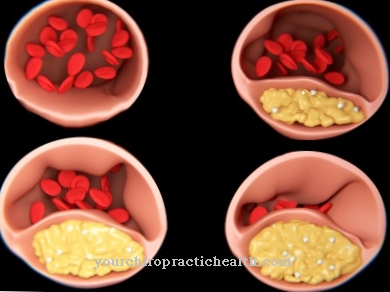
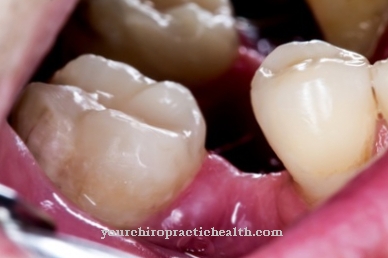
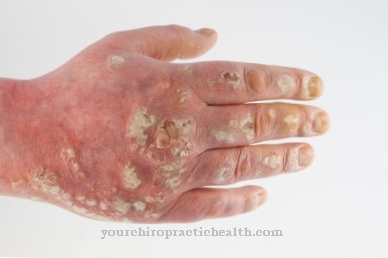
.jpg)
.jpg)
.jpg)


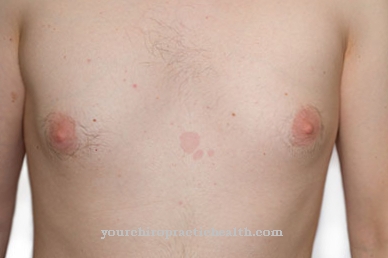

.jpg)


